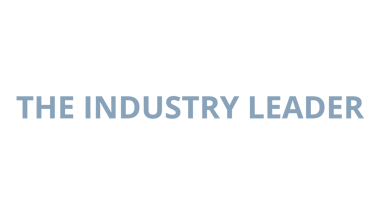Defending Against Copyright Infringement Claims: A Comprehensive Guide
Facing copyright infringement allegations? Understand your rights and explore effective defence strategies in this comprehensive guide.
Q + ALAWS
Graham Settleman
11/21/20232 min read


In the ever-evolving digital landscape, copyright infringement has become a prevalent issue, leaving many individuals and businesses grappling with the consequences of unintentional or deliberate use of protected material. While the fear of legal repercussions is understandable, it's crucial to approach such allegations with a clear understanding of the legal framework and potential strategies for defence.
Understanding Copyright Law: The Foundation for Defense
Copyright law grants the original creator of a work, whether literary, artistic, or otherwise, exclusive rights to its reproduction, distribution, and public performance. This legal protection safeguards the creator's intellectual property and ensures they receive due compensation for their creative endeavours.
When an individual or entity utilises copyrighted material without proper authorization, they risk infringing upon the creator's exclusive rights. This infringement can manifest in various forms, including:
Reproduction: Unauthorised copying of copyrighted material, such as duplicating software, music files, or literary works.
Distribution: Making copyrighted material available to the public without the creator's consent, such as uploading copyrighted content to online platforms.
Public Performance: Unauthorised exhibition or performance of copyrighted works, such as screening movies or playing copyrighted music without permission.
Defences Against Copyright Infringement Claims
While facing an allegation of copyright infringement can be daunting, there are recognized legal defences that can be employed to refute the claim. These defences include:
Fair Use: The fair use doctrine allows for the limited use of copyrighted material without permission for purposes such as criticism, commentary, news reporting, teaching, scholarship, and research.
Independent Creation: This defence applies when the allegedly infringing work was independently created and not copied from the copyrighted material.
Innocence: This defence asserts that the alleged infringer was unaware of the copyrighted status of the material used.
Licence Agreement: If the alleged infringer possesses a valid licence to use the copyrighted material, it can provide a strong defence against the claim.
Effective Strategies for Addressing Copyright Infringement Claims
Upon receiving an allegation of copyright infringement, it's crucial to take prompt and measured action. Here are some key steps to consider:
Seek Legal Counsel: Consulting with an experienced copyright attorney is essential to assess the validity of the claim, identify potential defences, and determine the best course of action.
Gather Evidence: Preserve any relevant documents, emails, or other materials that can support your defence.
Respond to the Claim: If contacted by the copyright holder or their representative, provide a timely and professional response, acknowledging the claim while reserving your rights.
Consider Negotiation or Settlement: In many cases, copyright infringement claims can be resolved through negotiation or settlement, avoiding the time and expense of litigation.
Litigation as a Last Resort: If negotiation or settlement is not feasible, litigation may become necessary to defend against the claim.
Preventing Copyright Infringement: Proactive Measures
To minimise the risk of copyright infringement, adopting proactive measures is essential. These include:
Educate Yourself: Familiarise yourself with copyright law and the principles of fair use.
Obtain Proper Authorization: Always seek permission before using copyrighted material, unless fair use applies.
Use Licensed Material: Consider using licensed or royalty-free content whenever possible.
Document Your Creation: Maintain records of your creative process to demonstrate independent creation.
Seek Guidance from Legal Experts: Consult with attorneys or copyright experts for complex projects or high-risk content.
Conclusion
Navigating the complexities of copyright infringement can be challenging, but understanding the legal framework, employing effective strategies, and taking proactive measures can significantly increase the chances of successfully defending against such claims. By staying informed and seeking professional guidance when needed, individuals and businesses can protect their intellectual property and avoid the pitfalls of copyright infringement.
Addressing Copyright Infringement Claims: A Step-by-Step Guide to Defense
Related Content
Get Connected
Stay up to date with weekly digests, product announcements, special offers and more.
Information published to or by The Industry Leader will never constitute legal, financial or business advice of any kind, nor should it ever be misconstrued or relied on as such. For individualised support for yourself or your business, we strongly encourage you to seek appropriate counsel.
Urikville Press Ltd © 2024
